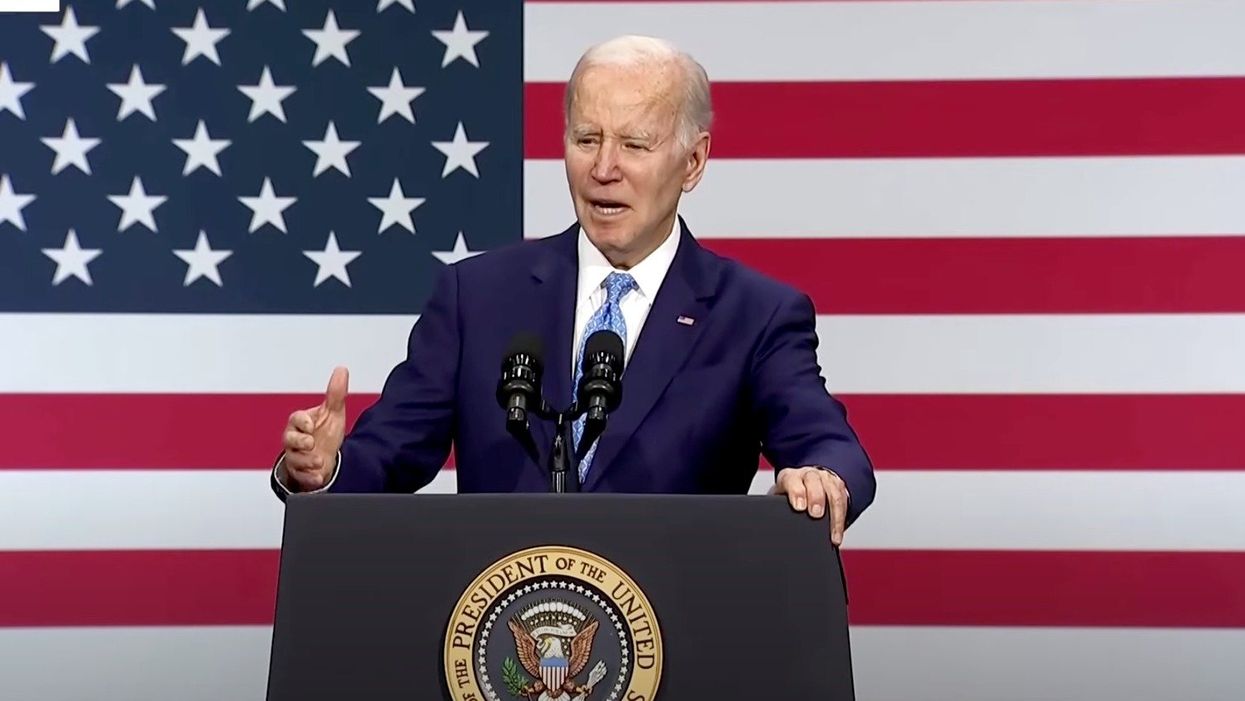Why Biden Opposes The District Of Columbia's Softer Criminal Code
Yes, Joe Biden believes that the District of Columbia should rule itself.
Yes, Biden believes that D.C.'s new softer-on-crime law was a bad thing and needed to be stopped.
But no, there isn't a disconnect between the first belief and the second. It's true that some of the changes in a criminal code have been misrepresented. But lowering the maximum prison time for a brutal crime, such as carjacking, is a terrible look when public fear of crime is high.
Thus, Biden is supporting a move in the Senate to reject the new law. Some history:
Mayor Muriel Bowser had rejected the measure, but the D.C. Council overrode her veto. Then the Republican-controlled House voted to kill it. Now the Democratic-majority Senate, with Biden's support, seems set to do the same.
The main gripe against Congress ditching something passed by the city council is that the district should not be controlled by politicians from Hawaii, Arizona or Maine. It should be a state with two senators and a fully empowered representative in the House. Thus, those who want the district to enjoy state-level sovereignty should not want legislators from elsewhere interfering with a law the city passed.
The good argument for D.C.-statehood is that the district has more people than Vermont or Wyoming. And racism surely plays a part in much of the reluctance to establish a new majority Black state.
Biden may agree but could also argue: That's fine, but until D.C. becomes a state, Congress gets a say on laws that get passed there. That's in the U.S. Constitution.
As for what's in the new criminal code, it's accurate to note that the maximum time in prison for carjacking would have been reduced to 24 years from 40 years. In the eight cases of armed carjacking from 2016 to 2020, the average sentence was only 15 years, so the change in the law wouldn't have done much soften the punishment. And in vetoing the law, Bowser said that she objected to only about 5% of the changes and could support an improved version.
As for the politics of it, some Republicans rant on about Democratic-run cities being pits of criminality. Most big cities are Democratic for a variety of reasons, and some suffer high crime.
That said, the rate of violent crime in Miami with a Republican mayor is nearly two times that of New York City, headed by a Democrat. Miami's rate of property crime, meanwhile, is more than twice New York's. (Weaker gun laws, as many Florida Republicans now advocate, is the last thing Miami needs.)
Also, the few fringe-left voices advocating for greater tolerance of criminality have little company. Voters in New York have been rejecting Democrats perceived as soft-on-crime Democrats — witness the significant move of many Asians and Latino voters toward Republican candidates in some neighborhoods.
Fears can be stoked. Even though violent crime in New York has been trending downward, the issue of public safety loomed large in a recent midterm election that flipped four congressional seats to Republicans. Most were in the suburbs where there is little violent crime.
So what's Biden up to? His motive could be simple opposition to a law that reduces punishments for serious crimes. It could be to seem tough-on-crime at a time when public disorder has become a potent campaign issue. It could be both.
But Biden knows full well that there is no easy way to explain criminal code reform that lowers maximum prison time for violent acts, even though the new maximum would still be high. If there's one thing Biden understands, it is politics.
Follow Froma Harrop on Twitter @FromaHarrop. She can be reached at fharrop@gmail.com. To find out more about Froma Harrop and read features by other Creators writers and cartoonists, visit the Creators webpage at www.creators.com.
Reprinted with permission from Creators.




